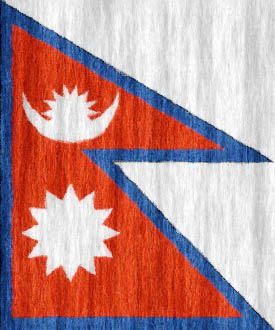IANS
Days ahead of a visit by External Affairs Minister Sushma Swaraj aimed at further strengthening bilateral ties, an Indian proposal for the development of Nepal’s abundant water resources has triggered a row in the Himalayan nation with many political parties opposing it contending it was not in Nepal’s national interest.
At a closed-door meeting in Kathmandu over the weekend, several former energy ministers of Nepal opposed the Indian proposal to develop Nepal’s hydro power sector and said “it is a bid to make Nepal another Bhutan”.
However, the Indian embassy in Kathmandu yesterday maintained that the draft proposal in no way constrained Nepal’s sovereign right to develop its
hydropower potential.
The embassy said in a statement: “Several Nepalese media outlets on Sunday picked the Indian proposal as dominating stories quoting some energy experts and political leaders that it undermines Nepal’s sovereign right to develop its hydropower potential
in Nepal.
“In no way does the draft constrain Nepal’s sovereign right to develop its
hydropower potential.”
“The proposal forwarded by India is a draft for discussion and would require bilateral negotiations prior to finalisation.”
The proposal was forwarded during the concluding phase of the Manmohan Singh government.
The row comes ahead of Sushma Swaraj’s three-day visit to Kathmandu, beginning on July 25.
The Indian proposal seems to have drawn flak for at least two reasons. Firstly, the proposal was kept a secret, even from some cabinet ministers, who were now demanding that the document be made public.
Second, it is being seen as a proposal that will allow India to dominate the abundant hydropower sector in Nepal.
Nepal is rich in hydropower with 42,133MW of viable potential. However, even with this enormous potential and a 100-year history of hydropower development, the total installed capacity, at present, is a mere 730MW.
Indeed over the past four years there has been a severe electricity deficit,
inducing painful load shedding.
The main opposition United Communist Party of Nepal-Maoist (UCPN-M) expressed its concern over the Indian proposal and contended that some of the provisions were against Nepal’s interest.
It said the provisions on energy generation, co-operation, energy buying and selling and price determination gave exclusive rights to India. Several other clauses of the proposed draft were also directed at providing benefit to India,
alleged the party.
A meeting of the ruling alliance partner Communist Party of Nepal (Unified Marxist-Leninist) on Saturday discussed the Indian proposal and asked Energy Minister Radha Gyawali to submit “a
satisfactory explanation”.
The leading ruling partner, Nepali Congress, was still to make its stand clear on the issue clear.
The raging controversy has led to Nepal cancelling the Eight Meeting of the Joint Committee on Water Resources (JCWR) scheduled to be held in New Delhi
yesterday and today.

